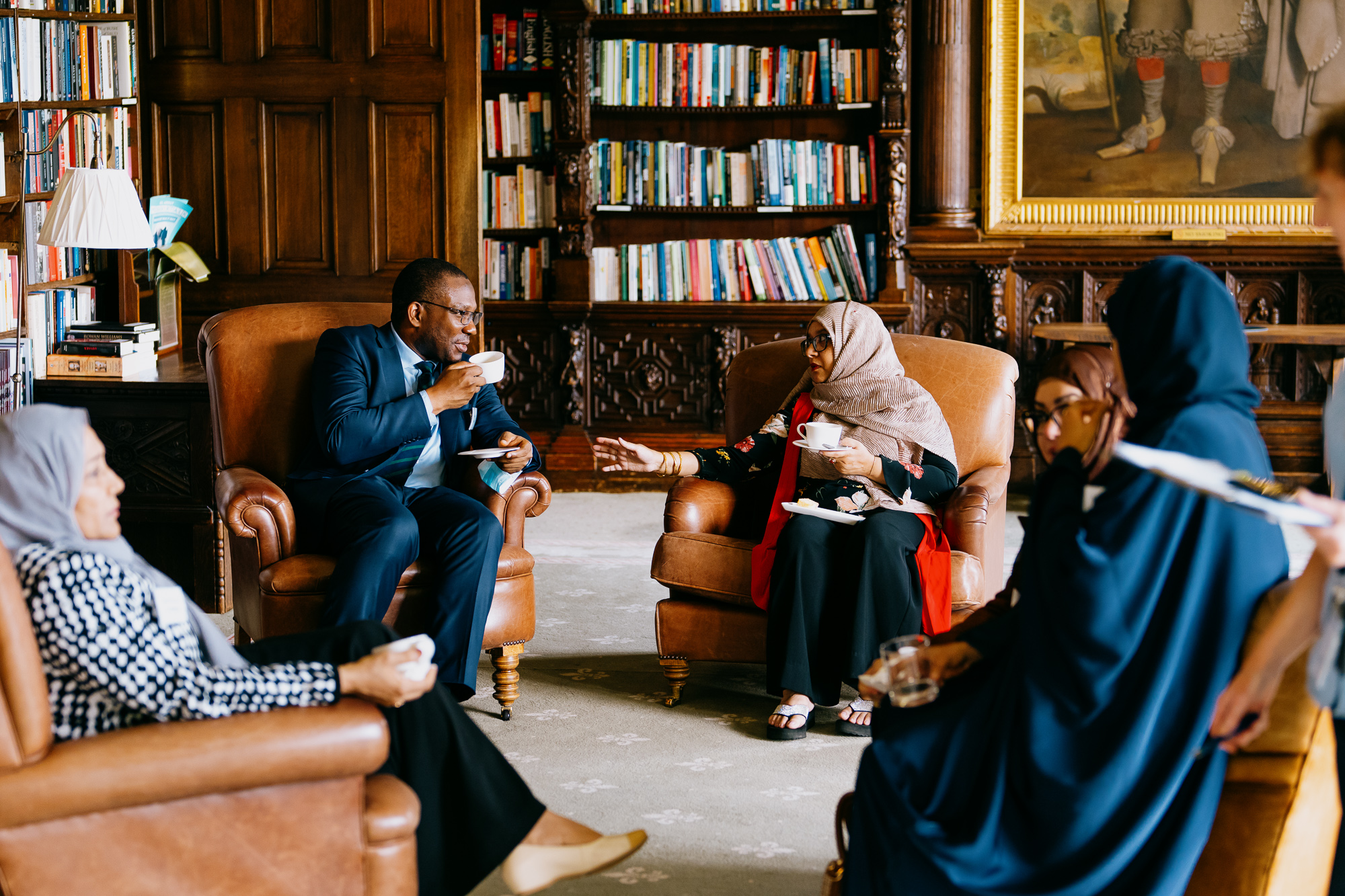It was clear that there was a wealth of expertise in the room at Wilton Park – from governments, international institutions, INGOs, academia, the private sector, philanthropic organisations and diplomats.
There were also moments when the sombre reality was presented to the delegates. DICID’s Professor Aisha Al Mannai set the tone by stating that millions of people were displaced due to the impact of the climate crisis; Out of 10 million displaced persons in the world, 50% are women and girls, and we really needed to understand the scale of the task ahead of us all. What was obvious was that today, there are 1.8 billion people between the ages of 10-24 years old —they are the largest generation of youth in history. Close to 90 per cent of the youth live in developing countries, the global south, where they make up a large proportion of the population.
How do we initiate the Reversal of the Anthropocene?How do we remind ourselves that we are merely stewards or caretakers of this beautiful planet? How do we remain spiritually connected whilst also being involved politically in the temporal world such as joining the COP discussions? Accountability of leadership, the need to tame greed and want, and the issue of colonialism and imperialism vis a vis the loss and damage fund were all highlighted as critical issues that needed to be addressed through the lens of justice and fairness. These questions were all debated during our time together.
-
“Colonialism and imperialism have played a large role in the climate crisis”
The simple answer was to be inclusive, to have a wide reach and diverse players and to build our own narrative and story, based on our faith traditions and indigenous traditions as a rich source of storytelling about our precious planet.
Only by systemic changes can we see a shift in gender dynamics. International institutions including those focusing on climate change need to understand that 84% of the planet are adherents of a faith, and with the majority of them based in the global south; it is imperative that policy considerations on gender and climate change from a faith perspective are promoted. It was also clear that the faith institutions or faith leaders did not have all the answers and that there were new opportunities for partnership and working together to be explore, perhaps using new technologies like AI to accelerate women’s leadership in the climate space.
The participants also acknowledged that there is often a lack of desire to build partnerships when there are groups created to empower certain groups / voices, but it was essential that a collaboration of some sort be initiated. To that end, a Framework for Radical Collaboration (see image below) was developed on the last day of the event which was a way to harness the energy that came from the room, from the women leaders and their male allies.
-
We want a new women-led faith-inspired framework of radical collaboration

